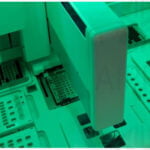
Alzheimer’s disease is a neurodegenerative disorder that affects millions of individuals worldwide. It is characterized by the progressive decline of cognitive functions, including memory loss, impaired thinking, and behavioral changes. While the condition primarily affects memory and cognitive abilities, it can also manifest in various physical symptoms. One such symptom that may occur in individuals with Alzheimer’s disease is nose picking. In this article, we will explore the phenomenon of Alzheimer nose picking, its potential causes, implications, and effective management strategies.
Nose picking, medically known as rhinotillexis, refers to the act of inserting a finger into the nostrils to clean, scratch, or remove nasal secretions. While nose picking is a common behavior among people of all ages, its occurrence in individuals with Alzheimer’s disease can be more pronounced and problematic. Alzheimer nose picking can be a result of various factors, including cognitive decline, sensory disturbances, and behavioral changes associated with the disease.
Cognitive Impairment:
Individuals with Alzheimer’s disease often experience cognitive decline, including difficulties with executive functions and impulse control. This decline may contribute to the development of repetitive behaviors such as nose picking.
Sensory Disturbances:
Alzheimer’s disease can lead to sensory disturbances, including altered perceptions of touch and discomfort. These sensory changes may contribute to an increased urge to pick the nose as individuals seek relief from perceived nasal discomfort.
Behavioral Changes:
Alzheimer’s disease can cause significant behavioral changes, including agitation, restlessness, and impulsivity. These behavioral changes may increase the likelihood of engaging in repetitive behaviors such as nose picking.
Risk of Injury:
Nose picking in individuals with Alzheimer’s disease can increase the risk of injury. The act of picking the nose with sharp fingernails can cause nasal irritation, bleeding, and even infections.
Social Stigma:
Nose picking is generally considered a socially unacceptable behavior. In the context of Alzheimer’s disease, where individuals may already face social challenges, nose picking can further contribute to stigmatization and social isolation.
Caregiver Concerns:
Alzheimer nose picking can be a source of concern for caregivers. It may be difficult for caregivers to address and manage this behavior effectively, leading to increased caregiver stress and burden.
Creating a Safe Environment:
Modifying the environment to minimize the occurrence of nose picking is crucial. Keep the individual’s nails trimmed short to reduce the risk of injury, and ensure the availability of tissues or handkerchiefs for nasal hygiene.
Diversion Techniques:
Engaging the individual with Alzheimer’s disease in alternative activities and distractions can help divert their attention away from nose picking. Providing sensory toys, puzzles, or engaging in gentle physical activities can be beneficial.
Promoting Nasal Hygiene:
Educate caregivers and individuals with Alzheimer’s disease about proper nasal hygiene techniques. Encourage the use of saline nasal sprays or gentle nasal irrigation methods to maintain nasal health.
A1: It is important to approach the situation with empathy and understanding. Try redirecting their attention to alternative activities or gently remind them to use a tissue instead.
A2: No, nose picking in individuals with Alzheimer’s disease is not necessarily a sign of neglect. It is a common behavior associated with the disease and can be managed with appropriate strategies.
A3: There is no specific medication targeted solely at reducing nose picking in individuals with Alzheimer’s disease. However, certain medications may help manage behavioral symptoms associated with the disease, potentially influencing the frequency of nose picking.
A4: While there are no specific natural remedies for nose picking, creating a safe and engaging environment, promoting nasal hygiene, and employing diversion techniques can help alleviate the urge to pick the nose.
A5: If nose picking becomes excessive or causes significant distress or injury, it is advisable to consult a healthcare professional or the individual’s primary care physician for further evaluation and guidance.
A6: Caregiving can be challenging, but seeking support from healthcare professionals, support groups, and respite care services can help alleviate caregiver stress and provide valuable guidance.
Alzheimer nose picking is a phenomenon that can occur in individuals with Alzheimer’s disease due to cognitive decline, sensory disturbances, and behavioral changes associated with the condition. While it can have implications such as the risk of injury, social stigma, and caregiver concerns, effective management strategies can help mitigate these issues. Creating a safe environment, employing diversion techniques, and promoting nasal hygiene are essential aspects of managing Alzheimer nose picking. By understanding the causes, implications, and management strategies related to this behavior, caregivers and healthcare professionals can provide optimal care and support for individuals with Alzheimer’s disease.
Recommended other topics: Moral Support: Empowering You to Overcome Challenges










© InfoDoot. All Rights Reserved.